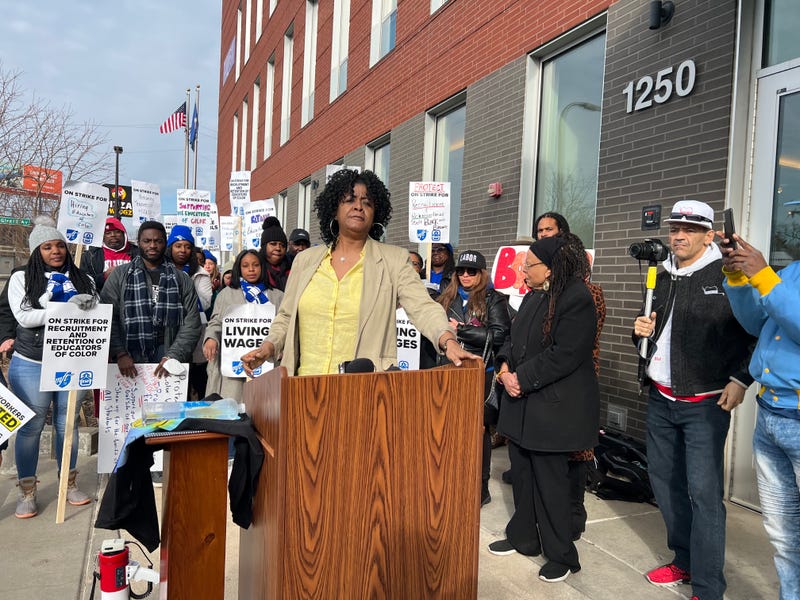
More than a week after the Minneapolis teachers strike began, educators are continuing to speak out.
Roughly 100 teachers, education support professionals (ESPs) and NAACP leaders gathered at the Minneapolis public school headquarters on Wednesday, voicing their concerns that the district is not doing enough to support black educators and students.
The event featured various speakers, but all shared a collective message: investment in educators of color is an investment in students of color.
“Our ESPs need to be paid and our black teachers need to be retained,” said Cynthia Wilson, the president of the Minneapolis NAACP. “The truth of the matter is this: when these black kids come into these schools and they see people that look like them they are able to deal with the situations that they are going through because they know they have someone who looks like them that understands what they are going through.”
Several black teachers and ESPs spoke of the struggles they’ve had in the schools and the lack of representation. Tra Carter, an ESP at Clara Barton Community, has worked for the district for seven years and was recently excessed. He is the only black male educator at the school and one of a handful of teachers of color.
“It’s ridiculous,” Carter said, adding he has had to take on extra jobs to sustain his basic needs.
And he’s not alone. Elevating pay for black ESPs was amongst the most talked about demand that the educators spoke about. Currently, a first-year education support professional makes about $24,000 a year, with more than two-thirds of the district's support staff working side jobs to supplement that income.
The sides remain at an impasse in a potential deal to return to the classrooms, with the union advocating for more funds and the district saying they don’t have the money to meet their requests.
“We are standing here as black educators but in solidarity with all the workers who are on strike right now,” said Nafeesah Muhammad, an English teacher in the city. “But what I do want to elevate is that right now in Minneapolis our black educators and black students are still dealing with the sins of segregation. We are currently still trying to fill in the gaps of what our city refuses to do, what our district refuses to do and what our state refuses to do.”
